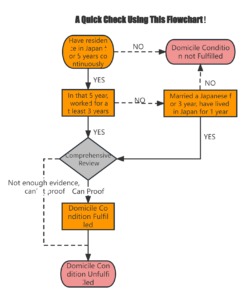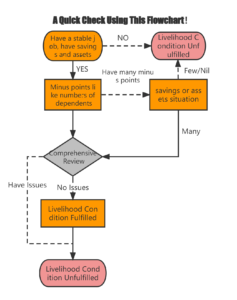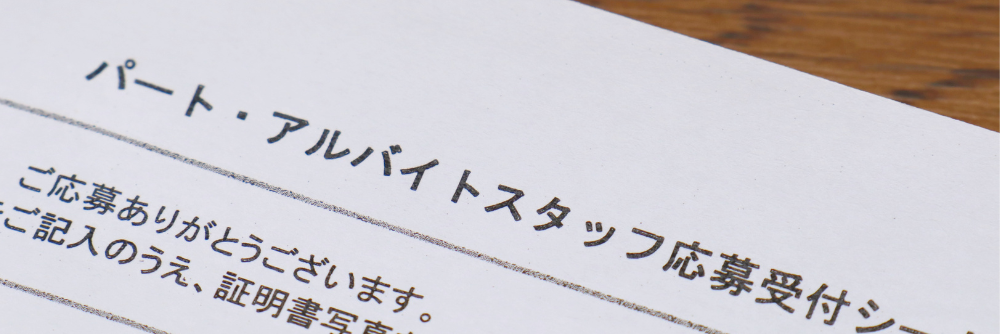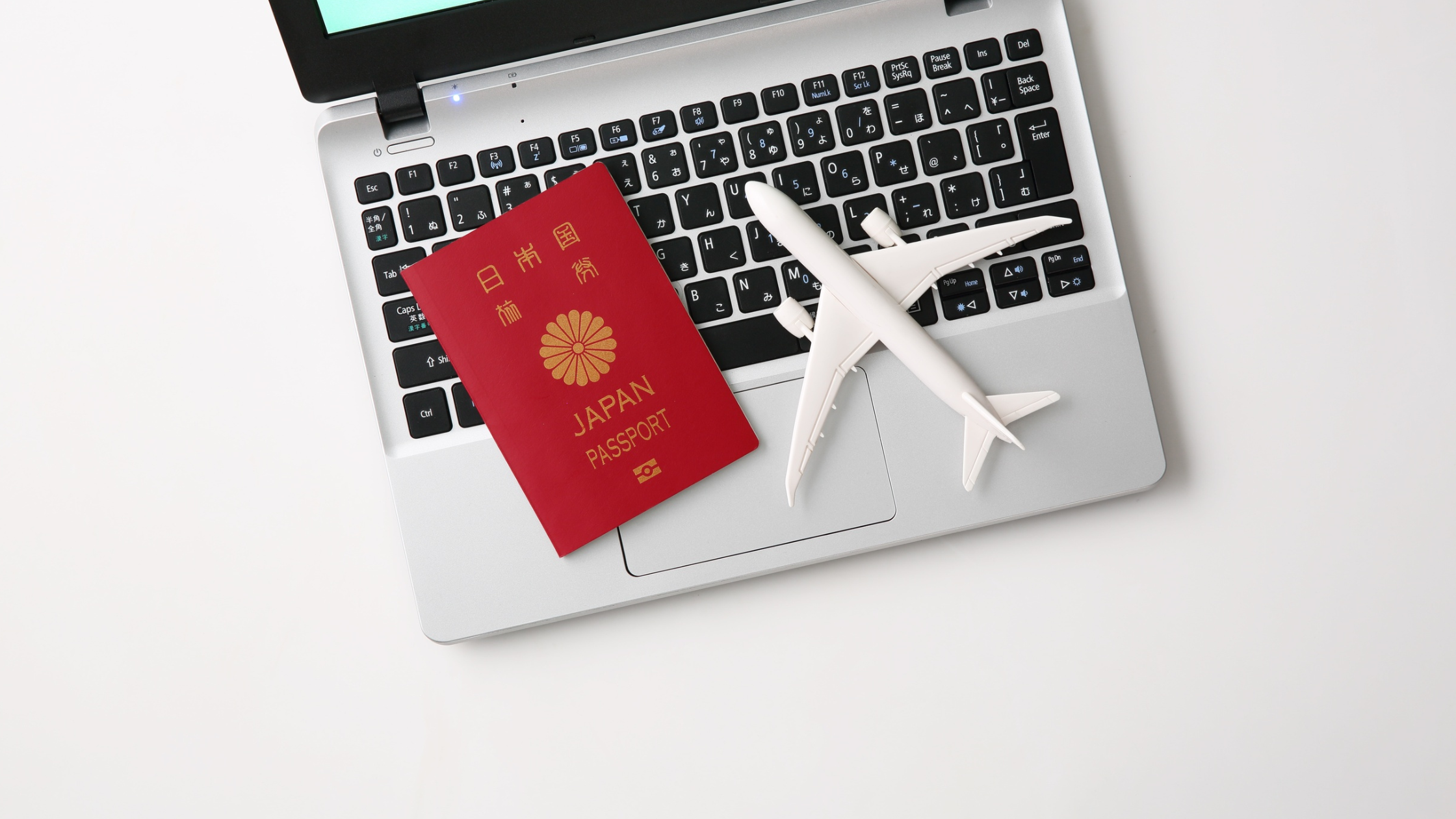Naturalization Application
Acquisition of Japanese Nationality for Taiwanese [Naturalization]
- 2024.05.13

Naturalization is the process by which a foreigner acquires Japanese citizenship in Japan. By naturalization, a foreigner can change his/her Japanese name, obtain a family register, and acquire the same rights as a Japanese national, such as social security rights and the right to vote. In order to become a naturalized citizen, you must submit the necessary documents to the Legal Affairs Bureau or District Legal Affairs Bureau that has jurisdiction over your address and obtain permission from the Minister of Justice.
Recently, we have been receiving an increasing number of consultations, especially from Taiwanese nationals, who wish to acquire Japanese citizenship.
“When do I need a copy of my Taiwanese family register?”
“Do I need to translate all of my Taiwanese family register? I am having difficulty with the translation, can you help me?”
“Do Taiwanese nationals need to renounce their nationality when they become naturalized?”
“When should I renounce my Taiwanese nationality?”
In this article, we will provide a thorough explanation of the Taiwanese family register and loss of nationality, a topic that is sure to be a concern for Taiwanese who are considering applying for naturalization!
Points to keep in mind when applying for naturalization in general
|
(Common requirements) First, check if you can be naturalized! |
||
|---|---|---|
|
Domicile Requirement |
・Come to Japan for 5 years and work for more than 3 years ・If you are a Chinese who is married to a Japanese, you must have been married for at least 3 years and in Japan for at least 1 year. [Points to note] ・If you have changed jobs and have a gap period (no job), the gap period is not included in the “3 years of work”. ・If you travel abroad for more than 150 days per year or leave Japan for more than 90 days at a time, there may be a problem. ・If you marry a Japanese national, the authenticity of the marriage will be strictly observed. |
 |
|
Livelihood Requirements |
・Provide a stable job and have a certain amount of savings. ・In the case of a business owner, both personal income and company management must be stable. ※Naturalization tends to become more difficult every year, and as a general guideline, a household of one person should have at least 3 million yen/year.
[Points to note] ・If you have more than one dependent for the purpose of tax reduction without actual status, it will be a problem. ・If you have some debts or debts such as loans, etc., but they do not affect your life, it is OK. |
|
|
Behavior Condition |
・Chinese nationals who have a driver’s license will be screened for past traffic violations. ・Violations of laws in China as well as in Japan are also relevant. ・Failure to pay pension, health insurance, and taxes can be a problem.
[Points to note] ・If the applicant has relatives in Japan and they have violations of laws or obligations, it is likely to have a negative impact on the applicant. (Even if there is no violation, for example, if the relative is a burden to Japanese society, such as welfare, it will be viewed negatively.) ・The electronic scooters that have become popular in recent years can now be ridden more casually due to legal revisions, but they also tend to be subject to stronger enforcement. Please be careful not to violate traffic laws when using them! |
|
|
Japanese Proficiency |
・You must be able to read and write at a third grade elementary school level ・You will be asked about your reasons for applying for naturalization, your background, and your plans after naturalization, etc. “I can barely say the language” may cause problems. |
|
Required documents for naturalization application for Taiwanese nationals
*The documents to be submitted and the procedure may differ depending on the customer’s situation and the Legal Affairs Bureau.
(1) Application form for naturalization (with photo)
*Facial photos (5 cm (H) x 5 cm (W)) to be affixed to the application form X 2
*The photo must be taken within 6 months prior to the application.
*If the applicant is under 15 years of age, the photo must be taken with his/her legal representative (parents, etc.).
(2) A document describing the relative’s profile
*Encribe accurately based on a copy of the family register or other documents.
Include information such as their intention to support or oppose naturalization and, in the case of relatives residing in Japan, their telephone number and contact information.
If there are relatives who cannot be contacted or who oppose naturalization, please consult a specialist or the Legal Affairs Bureau.
(3) Resume
*Some resumes require substantiating documents.
e.g.) If you are a student: Certificate of enrollment/last diploma or a copy of diploma.
e.g.) If your skills are listed: Certificate or other written materials attesting to your qualifications
e.g.) If you have a driver’s license: a copy of the front and back of the driver’s license
(4) Letter of motivation for naturalization
This must be handwritten.
Your Japanese language ability will also be checked here, so be careful not to use incorrect Japanese.
(5) Written oath
(6) Documents certifying nationality and status
A copy of the Taiwanese family register *For details, please refer to 3-1 “Family Register in Taiwan.
(7) Certificate of loss of nationality, etc.
*For details, please refer to 3-2 About Loss of Taiwanese Nationality.
(8) Entry and Departure Record
*This document must show the history of entry and departure from Japan from the time of landing in Japan to the present.
Enter the immigration history accurately based on passport information, etc.
The country of destination should also be listed.
If the number of days you have been out of the country is too long, it will affect the screening process.
(including records of expired passports)
(9) Copy of certificate of residence, etc.
(*All applicants, their cohabitants and spouses, etc. must be listed.
(10) A document stating a summary of living arrangements
*All applicable items must be submitted.
(1) Proof of employment and salary
(②Certificate of present value of savings and a copy of savings book
(iii) Copy of lease contract
(4) Certificate of land/building registration
⑤If there is a spouse or other relative who shares the same livelihood, a statement of their spending relationship.
If the applicant is financially supported by relatives from different households, the document should show the spending relationship.
For example, if you receive ¥100,000/month from your parents in Taiwan, a record of remittance from Taiwan and a record of payment in your bank book in Japan.
*Based on these documents, the applicant’s ability to make a sufficient living in Japan, etc. will affect the screening process.
(11) Documents describing the outline of business
(1) Certificate of registered matters of the company or other legal entity
(2) A copy of business permit or license
(12) Tax payment certificate, etc.
<In the case of an employee
(1) Withholding Tax Certificate
Certificate of tax payment, certificate of taxation or certificate of exemption from taxation for prefectural and municipal inhabitant’s tax
<(13) For sole proprietors, etc.>
(i) Gensen Choshuhyo (Certificate of Withholding Tax)
(ii) Tax return (including financial statements)
(iii) Income tax payment certificate
(iv) Business tax payment certificate
(v) Consumption tax payment certificate
(vi) Certificate of tax payment, certificate of taxation or certificate of tax exemption for prefectural and municipal inhabitants’ tax
(vii) Copy of tax payment certificate
<Corporate officer, manager, etc.>
(i) Tax return
(ii) Financial statements
(iii) Certificate of corporate tax payment
(iv) Certificate of corporate enterprise tax payment
(v) Consumption tax payment certificate
(vi) Certificate of corporate prefectural inhabitant tax payment
(vii) Certificate of corporate municipal tax payment
(viii) Copy of withholding tax withholding list (applicant’s portion) and payment slip
(13) Proof of payment of public pension premiums (for the most recent year)
*Submit one of the following
(i) Nenkin-teki-ben (regular letter of pension)
(ii) A copy of the receipt of pension premiums, etc.
*Pension delinquency, etc. will affect the screening process as the applicant has not fulfilled his/her legal obligations.
(14) Documents related to driving record
*Submit one of the following.
(1) Driving record certificate (for the past 5 years)
(ii) Driver’s license history certificate (for those who have had their driver’s license revoked or cancelled)
*If there are any violations, consult a specialist as a full explanation is required.
(15) A schematic diagram of the vicinity of your home, place of work, or place of business
*State the time required from A to B etc.
Based on these materials, an examiner from the Legal Affairs Bureau will conduct an on-site inspection of your home or place of work, etc.
(16) Others
Points to note when applying for naturalization for Taiwanese nationals
Taiwanese family register
■Family Registration System in Taiwan
Taiwan has a family registration system similar to that of Japan.
However, when you actually see a copy of Taiwan’s family register, there are some differences from Japan.
|
~ Characteristics of Taiwan’s Family Registry ~ The place of legal domicile and the current address are not distinguished (legal domicile = address). In principle, married couples use separate surnames. The Minguo Calendar is used in the family register. Information related to military service, is included in the family registry. |
■How to obtain a copy of Taiwanese family register
A copy of the Taiwanese family register usually requires a copy of the family register of the applicant’s parents from the time of their marriage. This family registration transcript is important evidence of how the applicant was registered in the family register in Taiwan and how family ties were formed.
|
~Connection between family registers, and how they are traced back~ Family registers in Taiwan, like family registers in Japan, change whenever events such as marriages, births, and relocations occur. In the case of marriage, a new family register is formed, and the same applies when the place of domicile is changed. Family registers are intricately intertwined by generations, marriages, and a variety of other factors that connect them to the present day. In special cases, such as when the applicant’s mother is unmarried, the officer in charge may give special instructions to the applicant’s family register. This may require information relating to a specific time period, such as a copy of the applicant’s mother’s family register from the time of her birth. |
|
~How to Obtain~ Family registers in Taiwan can only be issued by the local Taiwanese Family Affairs Office. Therefore, it is common for the applicant to return to Taiwan or ask a representative in Taiwan to apply on his/her behalf. In the case of a representative application, a letter of authorization needs to be prepared for the person residing in Taiwan, to request the application. |
|
~A full transcript? Partial transcript? ~ (partial transcript or full transcript?) In addition, there are two types of family registry transcripts: one for an individual (partial transcript) and one for the entire household (full transcript), For naturalization application, basically, the entire household is required, but in some cases, only the individual’s copy can be obtained to protect personal information.
|
■Translation of Taiwanese family register
The process does not end when the necessary family register transcripts have been obtained; all family register transcripts must be translated!
Taiwanese family registers contain terms unique to Taiwan, which are not easy to translate accurately. In addition, although today’s family registers have been digitized, most of the old ones were written by hand, and it is said that even Taiwanese people have difficulty in reading what is written.
Our company is well-versed in translating Taiwanese family registers and can be requested to translate only family registers!
In addition, our naturalization application plan includes the translation of family registers as a service, and we do not charge a separate fee.
Loss of Taiwanese Nationality
Taiwan, like Japan, does not recognize dual citizenship, and if you wish to acquire Japanese citizenship, you must go through the process of losing your Taiwanese citizenship.
Other countries also require procedures for loss of nationality, but the timing and method of loss of nationality procedures vary from country to country.
If you make a mistake and lose your nationality prematurely, your application for naturalization may not be accepted, or if naturalization is not granted, you may become stateless. Please be careful about the timing of the loss of nationality procedure.
◯When should I apply for loss of Taiwanese nationality?
⇒In the case of Taiwan, the procedure for loss of Taiwanese nationality must be completed before acquiring Japanese nationality!
The officer in charge at the Legal Affairs Bureau will instruct you to complete the loss of nationality procedure before the official naturalization permission is granted.
◯Can I apply for loss of Taiwanese nationality in Japan? How long does it take?
⇒ Yes, the procedure for loss of nationality can be done in Japan. You can apply for it at the jurisdiction office of your residence.
It takes about 2 months to complete the procedure.
◯What documents are required for the procedure for loss of Taiwanese nationality?
Required documents vary depending on the applicant’s age, gender, and family registration status.
Please refer to the website of the Taiwanese Embassy or Consulate for more information.
https://www.roc-taiwan.org/uploads/sites/54/2018/11/%E5%9B%BD%E7%B1%8D%E5%96%AA%E5%A4%B1%E5%BF%85%E8%A6%81%E6%9B%B8%E9%A1%9E.pdf
Summary
The application for naturalization for Taiwanese citizens differs greatly from that of other nationalities.
In this article, we explained about the family register and renunciation of Taiwanese nationality. In addition to the family register and renunciation of nationality, there are many other documents that need to be collected and prepared in Japan. In many cases, more than 100 documents are required, and the examination period can take from 8 to 18 months, which is a very long time.
We have a great deal of experience in naturalization applications for Taiwanese nationals. Please feel free to contact us for a free consultation.
We are Yanagi group, which have offices in Osaka (Abeno and Tennoji), and our affiliated offices in Tokyo (Shibuya and Ebisu) are also available for an on-site consultation. We have handled many applications for permanent residence permits, naturalization permits, work visas, college student visas, management visas, etc., as well as visa renewal procedures related to the status of residence with the Immigration Bureau (Immigration Bureau) as a one-stop service. Our experienced administrative scriveners are also available to help you with any problems you may have.
We also have staff members who can speak each of the native languages and can assist you in obtaining a visa.
※If you wish to be consulted in Nepali or Bengali, please inform us in advance via our website or social media, and the translator will contact you ahead of time.
Please feel free to contact us if you have any questions about your status of residence or visa, even if they are trivial.
Toll-free number: 0120-138-552
For English speakers: 080-9346-2991
For Chinese speakers: 090-8456-6196
For Korean speakers: 090-8448-2133
For Vietnamese speakers: 080-5510-2593
Editor of this article

- Ryota Yanagimoto
- Administrative Scrivener/Judicial Scrivener
At the age of 24, he passed the national examinations for judicial scrivener, administrative scrivener, and wage service manager at the same time.
While working as a full-time lecturer at a major prep school, he independently opened a legal office related to judicial scriveners and administrative scriveners,
and he has experience as a judicial scrivener and an administrative scrivener for more than 15 years so far.
He has been actively contributing to various industries such as publicly listed companies, real estate companies, financial institutions, elderly care services, and professional organizations by conducting seminars, lectures, and talks.
And now he has a record of over 60 presentations so far.
Furthermore, as the president of a Japanese language school announced by the Ministry of Justice and Acts, and an advisor to a real estate company (capable of handling foreign clients),
he has been involved in various aspects of industries related to foreigners.
It is recommended to consult with experts when it comes to visas, naturalization, and residency matters.

Our office has specialized experts in visa and naturalization applications who are available to assist with free consultations (limited to the first session) and inquiries related to various visa applications and naturalization applications.
Additionally, we have foreign staff proficient in English, Chinese, and Korean languages with specialized knowledge, and they are present to provide support. They can accommodate consultations and inquiries in each language. Feel free to use our free consultation and inquiry services from here.


























 0120-138-552
0120-138-552 Free
Consultation
Free
Consultation Contact Us
Contact Us